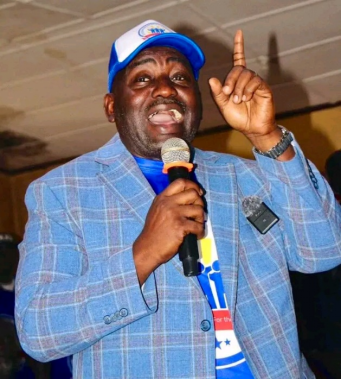Hanson T. Doe, a former student leader turned activist, has issued a public plea to Representative Musa Bility of Nimba County, urging him to address the long-standing neglect and underdevelopment plaguing Liberia’s southeastern region. Doe emphasizes the historical significance of the Southeast as Liberia’s traditional heartland, yet laments its decades of marginalization, even at the hands of its own representatives in government. He believes Bility possesses the leadership qualities necessary to bring about transformative change and resolve the region’s deep-rooted problems. Doe’s appeal highlights the dire conditions faced by southeastern communities, compelling many residents to migrate to Monrovia’s overcrowded slums in search of better opportunities.
Doe’s central argument revolves around the severe lack of infrastructure in the Southeast. He points to the absence of farm-to-market roads, which cripples local agricultural economies and isolates communities. The lack of electricity, safe drinking water, healthcare facilities, and quality education further exacerbates the region’s challenges. Doe underscores the disparity between the resource richness of the Southeast, particularly in areas like Forpoh District in Grand Kru County with its mining activities, and the abject poverty experienced by its residents. He criticizes the region’s policymakers for failing to attract investments and implement policies that could leverage these resources for the benefit of the local population.
The activist also highlights the detrimental impact of poor infrastructure on governance and democratic processes. He points to the difficulties faced by the National Elections Commission (NEC) and the Liberia Institute of Statistics and Geo-Information Services (LISGIS) in conducting voter registration and census exercises due to inaccessible terrain and lack of road connectivity. This inaccessibility, compounded by the absence of network coverage and high commodity prices, creates significant obstacles to development and effective governance. He criticizes the government’s focus on revenue generation without a corresponding commitment to improving the region’s infrastructure, particularly roads, which are crucial for economic growth and access to essential services.
Doe draws a comparison with Pleebo in Maryland County, where investments in logging, palm farming, and rubber concessions have spurred population growth and development. He argues that similar investment strategies could be implemented in other southeastern counties to unlock their economic potential and improve the living standards of their residents. He emphasizes the need for a shift in mindset among policymakers, urging them to prioritize investments in agriculture and infrastructure to stimulate economic activity and alleviate poverty in the region.
The activist also raises concerns about voter disenfranchisement due to limited polling places in Grand Kru County. He argues that the long distances citizens have to travel due to poor road conditions discourage participation in elections. Doe criticizes the practice of paying individuals to vote in districts other than their own, highlighting how this undermines the integrity of the electoral process and marginalizes vulnerable populations. He calls for the establishment of more polling centers in accessible locations to ensure that all citizens have the opportunity to exercise their right to vote.
Doe concludes his appeal with a direct call to action, urging the government, particularly the Grand Kru County Legislative Caucus, to prioritize road construction in the Southeast during the dry season. This, he argues, is a crucial step towards alleviating the suffering of the region’s citizens and paving the way for sustainable development. He believes that improved road connectivity will not only facilitate economic activity but also enhance access to essential services, improve governance, and promote greater inclusion in democratic processes. Doe’s passionate plea underlines the urgent need for intervention in the Southeast, advocating for a more equitable distribution of resources and opportunities to address the region’s long-standing challenges.














